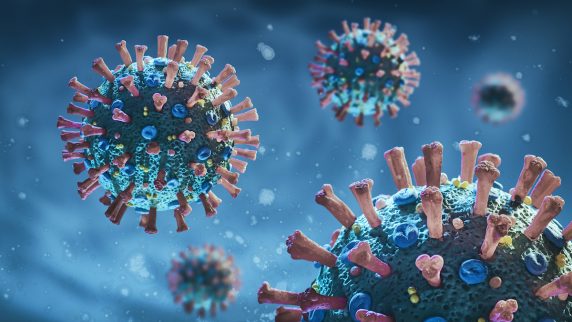Smartphone apps are designed to make just about everything more convenient – and recently, that includes a study about long COVID.
After analyzing the smartphone logs of nearly 100,000 people, a peer-reviewed UK study concluded that Omicron is less likely to cause long COVID than Delta, at least among vaccinated individuals. About half as likely, to be precise: Among participants, the average risk of long COVID after Omicron was 4.5 percent, versus 10.8 percent for Delta.
But, as with so much when it comes to smartphones, convenience only gets you so far.
“This study certainly merits attention, and there may be some truth in it,” says Virginia Bieluch, MD, chief of Infectious Diseases at The Hospital of Central Connecticut. “But it also has its limitations.”
Self-selected participants may not represent the general population.
The study’s 97,364 participants opted in through the UK’s COVID Symptom Study app, which they had downloaded as a symptom tracker on their personal smartphones.
For researchers to count them in the study, they needed to have had at least one vaccine dose; been diagnosed with COVID-19 within a certain period of time; and used the app to regularly log any symptoms (or not) throughout the three months following their infection.
Of course, they also needed to have downloaded the app in the first place, and been diligent about using it. That introduces a common problem with research relying on volunteer data.
“Self-reported studies are notorious for what researchers call selection bias,” says Dr. Bieluch. “For this study, these were all individuals with the means to own a smartphone, and interest in tracking – and sharing – their health information. It’s a self-selected group of people with a lot of motivation.”
Those qualities don’t necessarily represent the general population. It can mean that the results don’t represent the general population, either.
Post-acute COVID-19, long-haul COVID, chronic COVID: There are different definitions of long COVID.
Research can be problematic enough when participants’ answers are self-reported. It’s even more so when that research is looking at long COVID — which, depending on symptoms, timeline and who you ask, may also go by long-haul COVID, post-acute COVID-19, post-acute sequelae of SARS CoV-2 infection, long-term effects of COVID and chronic COVID.
“It’s a murky area,” says Dr. Bieluch. “Long COVID is defined differently in different papers. Different researchers look at different symptoms, and different timelines.”
For instance, long COVID been linked to more than 200 symptoms, but experts don’t agree on all of them. Many can’t be measured by anything but a patient’s own description. Symptoms can linger after the original COVID infection; they can emerge brand new weeks or months later; they can go away and come back. And of course, while there are now several ways to test for acute COVID-19, there’s no test yet for long COVID.
For as many problems as this raises for researching long COVID, it also underscores why it’s so important.
For long COVID and variants, the research has just begun.
According to the WHO, about 10 to 20 percent of people develop prolonged symptoms from COVID-19. That means a large portion of the population is already dealing with the challenges of long COVID, or someday might.
So while the recent smartphone study has its shortcomings, it’s a start.
“We do seem to be finding that long COVID is occurring less frequently with Omicron than with Delta,” Dr. Bieluch allows. “By exactly how much, and why? That’s harder to determine. It’s going to be very important to have continued research in this area.”
It’s also worth noting: Although Omicron is probably less likely to cause long COVID, a lot more people have been infected with it – so while Omicron’s percentage of long COVID cases may not be as high as Delta’s, the overall numbers will be. “It’s a lower percentage,” says Dr. Bieluch, “but it’s a lot of people.”



